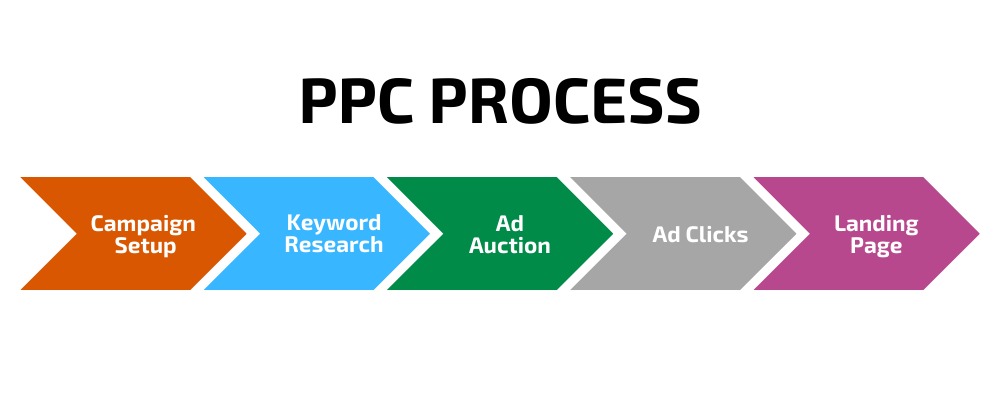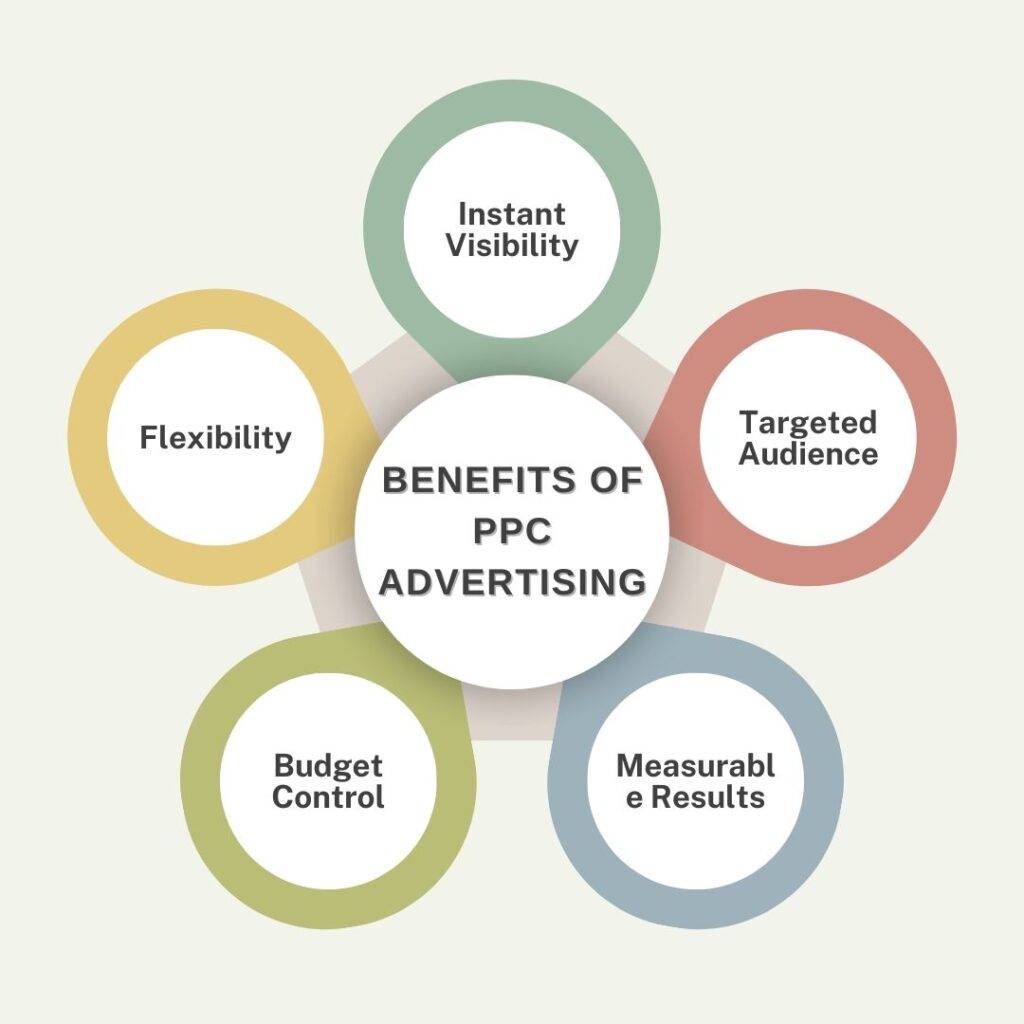In today’s fast-paced digital world, businesses are always looking for ways to attract more customers and grow their online presence. One of the most effective methods is Pay-Per-Click (PPC) advertising. PPC allows businesses to reach their target audience quickly and efficiently. Whether you’re a small company or a big one, PPC can be a powerful tool for your marketing. It’s a type of online advertising that can provide immediate visibility, measurable results, and a high return on investment (ROI).
What is Pay-Per-Click Advertising?
Pay-Per-Click advertising is a type of online marketing where businesses pay a fee every time someone clicks on their ad. Instead of waiting for people to find your website through regular search results (like SEO), you pay to get visitors. These ads show up on search engines like Google, social media sites like Facebook and Instagram, and other websites that work with ad networks.
The great thing about PPC is how simple it is: you only pay when someone clicks on your ad. This model makes it a cost-effective option for businesses, as they are not paying for impressions but for actual engagement with their ads.
How Does PPC Work?
To understand the power of PPC advertising, it’s important to know how it works. The process typically follows these steps:

- Campaign Setup: The advertiser creates a campaign on a platform like Google Ads or Facebook Ads Manager. This includes defining the target audience, setting a budget, and crafting the ad copy and visuals.
- Keyword Research: In search engine advertising (like Google Ads), the advertiser selects keywords that are relevant to their product or service. These keywords trigger the ad to appear when a user searches for them.
- Ad Auction: When a user enters a search query that matches the advertiser’s chosen keywords, an auction takes place. The ad platform considers several factors, such as bid amount, ad quality, and relevance, to determine which ads will be shown.
- Ad Clicks: If a user clicks on the ad, the advertiser is charged based on the cost-per-click (CPC). The cost per click varies depending on factors like competition for the keyword and the quality score of the ad.
- Landing Page: After clicking the ad, the user is directed to a landing page. This is where the real engagement happens—whether it’s filling out a form, making a purchase, or signing up for a newsletter.
The Benefits of PPC Advertising
PPC advertising offers a range of benefits that make it a valuable tool in digital marketing:

1. Instant Visibility
One of the key advantages of PPC is that it provides immediate visibility. Unlike SEO, which can take months to show results, a PPC campaign can get your business in front of potential customers almost instantly. This makes PPC especially useful for time-sensitive promotions or new product launches.
2. Targeted Audience
PPC allows businesses to target their ads with incredible precision. Advertisers can target based on location, demographics, interests, and even behavior. This ensures that your ads are seen by people who are more likely to be interested in your products or services.
3. Measurable Results
One of the greatest strengths of PPC advertising is the ability to track and measure results. Platforms like Google Ads provide detailed reports that show how many people saw your ad, clicked on it, and took action on your website. This data allows businesses to calculate their return on investment (ROI) and adjust their campaigns accordingly.
4. Budget Control
With PPC, you have complete control over your budget. You can set daily or monthly spending limits, and you only pay when someone clicks on your ad. This makes PPC suitable for businesses with any size budget, from small startups to large enterprises.
5. Flexibility
PPC campaigns can be adjusted in real-time. If you notice that a particular ad isn’t performing well, you can tweak the copy, change the targeting, or increase your bid to improve results. This flexibility allows businesses to optimize their campaigns for maximum effectiveness.
Common PPC Platforms
Several platforms support PPC advertising, each offering unique advantages:

- Google Ads: The most popular PPC platform, Google Ads allows businesses to place ads on Google’s search results pages and across its display network of partner websites.
- Facebook Ads: Facebook’s robust ad targeting options make it a great platform for reaching specific demographics. Ads appear in users’ news feeds, stories, and even on Instagram.
- LinkedIn Ads: For B2B marketers, LinkedIn Ads is an excellent platform for targeting professionals based on job title, industry, and company size.
- Bing Ads: While not as widely used as Google Ads, Bing Ads can be an effective way to reach users on the Microsoft search network, especially since competition and cost-per-click can be lower.
Maximizing Your PPC Campaign
To get the most out of your PPC campaigns, follow these best practices:
- Conduct Thorough Keyword Research: Use tools like Google Keyword Planner to identify high-performing keywords that are relevant to your business. Long-tail keywords, which are more specific phrases, can help you reach a more targeted audience at a lower cost.
- Optimize Your Ad Copy: Writing compelling ad copy is crucial for attracting clicks. Make sure your ad highlights the key benefits of your product or service and includes a strong call-to-action (CTA).
- Improve Your Landing Page: A well-designed landing page is essential for converting clicks into leads or sales. Make sure your landing page is aligned with your ad and provides a seamless user experience.
- Monitor and Adjust: Regularly review your PPC campaign performance. Look at metrics like click-through rate (CTR), conversion rate, and cost-per-conversion to identify areas for improvement.
Conclusion:
Pay-per-click advertising is a powerful tool that can help businesses of all sizes reach their target audience and achieve their marketing goals. Its ability to provide instant visibility, precise targeting, and measurable results makes it an essential component of any digital marketing strategy.
At Moving Digits, we help you master the art of PPC through our comprehensive digital marketing courses. Whether you’re a student or a business owner, our programs will equip you with the skills you need to create and manage successful campaigns.









